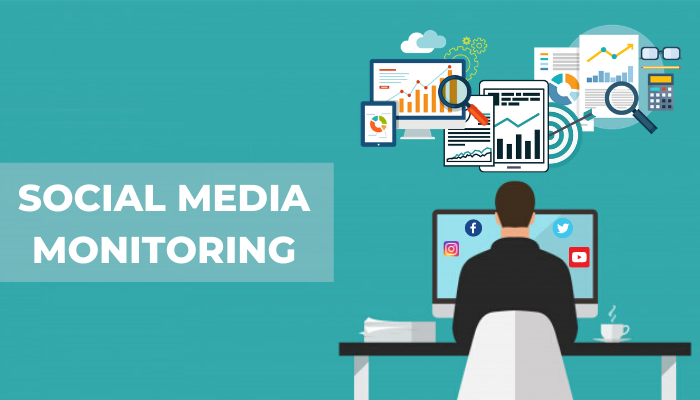
Social Media Monitoring (SMM) is the use of available digital tools to keep track of customers’ or competitors’ activities and conversations which may affect a startup either positively or negatively.
Keeping a keen eye and ear on what trends affect both the business and its target customers helps pinpoint effective marketing campaigns. As such, it is advantageous to use social media channels to fine-tune with what customers demand.
To have a better insight on the important role of SMM to startups, below are the five benefits that monitoring social media channels can bring to small businesses:
1. Brand Monitoring
Brand monitoring involves tracking various web channels or media as a way to understand the customer’s perspective. The practice of monitoring how customers perceive the products and services offered by a company prompts strategic responses that help foster trust. SMM helps startups determine the best way to protect their image and enable a smooth transition for their business as it continues to flourish through digital marketing.
Brand managers should take note of both positive and negative mentions of their brand across various social media platforms.
There are also other factors that should be observed to enhance one’s brand reputation:
- Brand Advocates
- Brand Detractors
- Direct and Indirect Questions from Customers
- Influencers
- Product Misuse
2. Competitive Intelligence
The phrase “survival of the fittest” helped revolutionize the way entrepreneurs handle their businesses. Today, there is too much competition among businesses. Those who are able to conform to drastic market and economic changes are the ones that survive while ventures that are incapable of keeping up with the trends are most likely fail. The question now is, what is the strategy used by thriving businesses that startups can adapt?
The answer is simple: Monitoring competitor strategies lets a business determine the strengths and weaknesses of more established businesses. Startups can leverage that information to boost their existing strategies, particularly with how they use social media to reach more customers.
Through SMM, startups can check whether competitors have negative mentions on any of their social media pages and use that information to optimize a solution for the competitor’s unhappy customers. Awareness of competitor strategies likewise paves the way for generating ideas on trends and product innovations that appeal to people.
3. Lead Generation and Sales
Lead generation refers to the gathering of prospective consumers and converting them into interested parties that will want to avail of a company’s products and services. Lead generation, especially for sales, serves as the “meat” of every business that pushes it to continue prospering. The absence of leads and sales is equivalent to the downfall of one’s enterprise. Thus, it is essential to consistently have a concrete and stable audience who will support the company closely and will greatly need the products and services offered by the business.
Upon generating inquiries of target audience, a company or startup’s brand strategist can think of the most ideal way on how to address each question sent by customers and possible leads. Providing a definitive answer to customer questions can inform the target audience more about what the business is all about. As a result, the consumer will be enticed to engage with the enterprise, knowing that there is a high chance that they will get their money’s worth.
More importantly, generating leads and obtaining relevant audience information provides business owners with a thorough idea of how to design new product concepts that customers will react to on a positive note.
4. Customer Service
It is inevitable that startups and even established businesses may encounter problems caused by unsatisfied clients. The saying, “customers are always right” may hold some truth to it, but it may not always be the case. Regardless of how right or wrong a customer may be, they will always have questions about a business’ services. Social media monitoring helps businesses fine-tune between big and small customer concerns.
Nowadays, complaints from angry customers can be posted on social media. When not settled quickly, it can escalate into uncontainable proportions. It can likewise reach prospective clients and discourage them from availing of the services.
Settling customer concerns swiftly and excellently will reflect on the business’ online branding and social media pages. Indeed, there are negative comments that are baseless and purely made up. Some may even argue that bad exposure is still good exposure. However, it is best to work towards staying on the customers’ good side.
5. Crisis Communication
Crisis Communication is the ability of a company’s PR team to protect the business’ reputation and branding through quick decision making.
Among the most common types of crises that companies experience encompasses the following factors:
- Company Staff or Personnel
- Finances
- Natural Calamities/Disasters
- Organizational Conflicts
- Technological Issues
Divulging the issues and critical moments encountered by a business through social media can leave investors and future business partners to hold off any future engagements with the said business. On the other hand, consistent monitoring of potential threats through SMM can effectively assist a business. Efficient crisis communication boosts a company’s immunity and preparedness over critical challenges that it may face as it continues to prosper.
*************************************************************************************
Stay tuned for more helpful tips on how to build your business through Social Media Monitoring and Social Media Marketing. Don’t forget to follow us on social media as well!
Table of Contents
